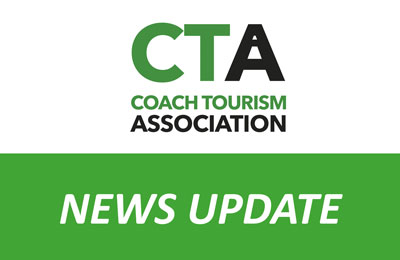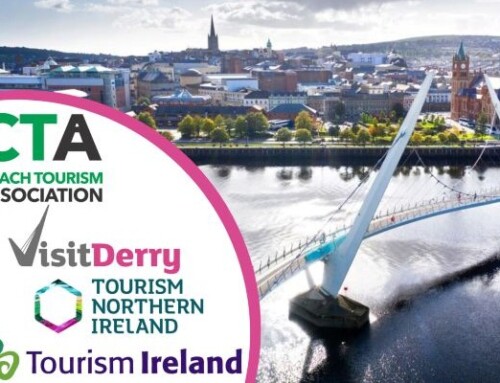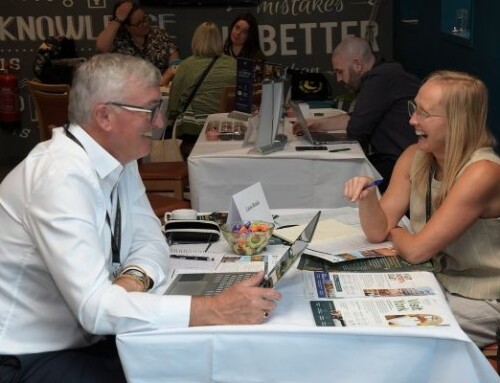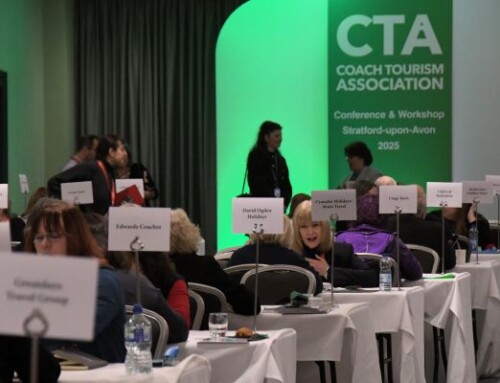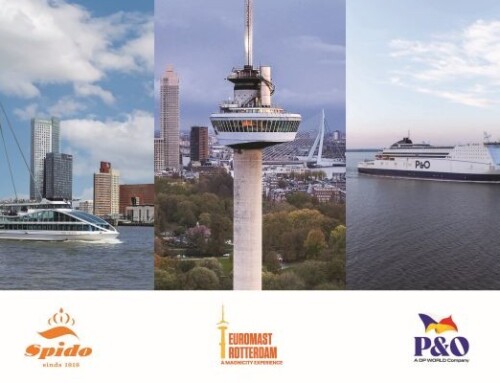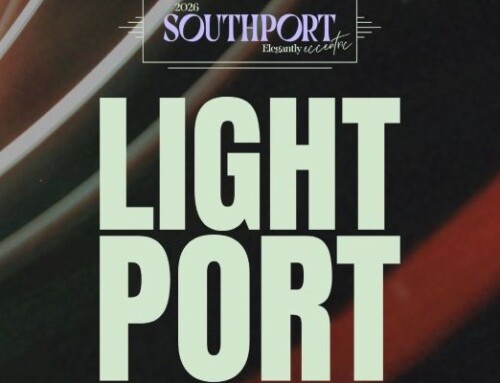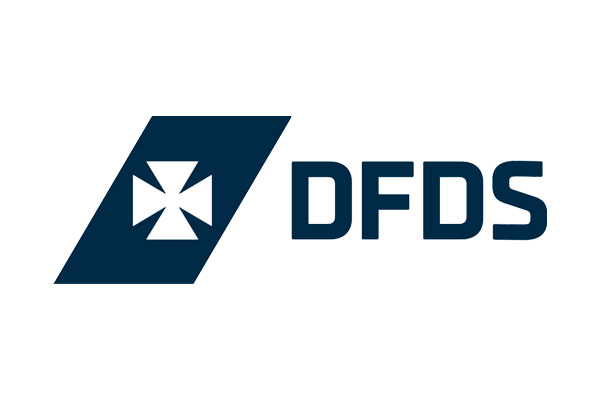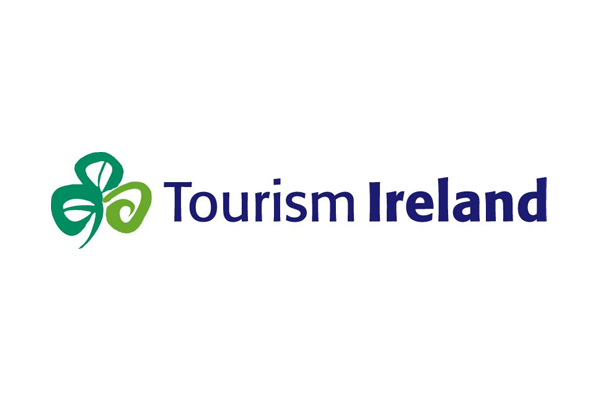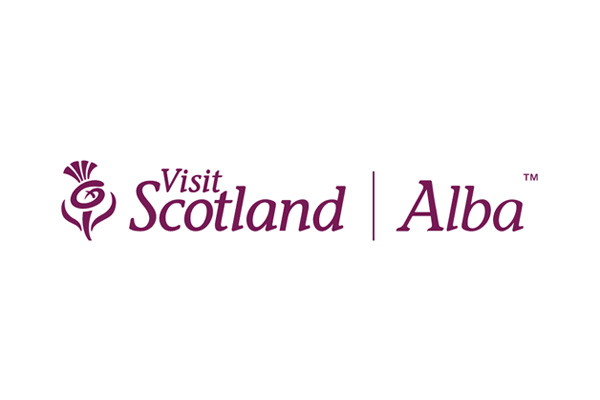COVID-19 Updates – week commencing 22/06/20
More updates of developments from the government and various links to interpretation and guidance.
Go to date:
22 June 2020 …
Tourism Alliance update:
VisitEngland recovery webinars for businesses
VisitEngland is hosting a series of free business recovery webinars to help businesses get back on track following the COVID-19 pandemic. The webinar programme covers a number of topics to provide businesses with practical insight and valuable information from within VisitBritain/VisitEngland and across the wider travel industry. The programme starts on Tuesday 30 June with a spotlight on inbound and domestic research and insight. The full list of webinars and booking information for each webinar can be found on the website
Wales Reopening
The Welsh Assembly undertook their three week review of restrictions and announced that, subject to the infection rate, lift the restriction on people only being able to travel within five miles of home on 6th July and is urging local communities, local authorities and outdoor visitor attractions to use the two week period before then to prepare for reopening.
The next review date is not until 9th July and the Welsh Assembly is, in the meantime, asking some business sectors to take steps to prepare for a further easing of the regulations. One of the sectors being asked to prepare to open is: the visitor economy, including accommodation without shared facilities where social distancing is possible.
It was also announced that, the next three weeks, there will be detailed discussions between the Welsh Government and the sector about the options and potential phases for opening the hospitality sector – pubs, cafes, restaurants – under social distancing, and if we continue to see a reduction in the spread of coronavirus.
While the official announcement does not give a specific date for when accommodation businesses will be able to open, in interviews with the media associated with the announcement, the First Minister is quoted as saying “people will be able to take bookings in Wales from 13 July onwards”. This indicates that, if everything goes to plan, the Welsh Assembly will announce on 9th July that at accommodation without shared facilities will be able to open on 13th July.
Opening Dates
With the Wales announcement on reopening, the reopening dates across the UK and Ireland now look like this:
Wales
- Possible opening of outdoor activities and attractions on 6th July
- Announcement on 9th July with possible opening from 13th July of accommodation without shared facilities
- Reopening of accommodation with shared facilities, restaurants, cafes, pubs and indoor attractions and events unknown but possibly after 13th July
Scotland
- Industry told to prepare for opening on 15th July as an indicative date
- A date for reopening pubs and restaurants will not be decided until at least 2nd July
Northern Ireland
- 26th June – reopening of caravan parks, camping sites and self-catering tourist accommodation
- 3rd July – reopening of other tourist accommodation as well as attractions, pubs and restaurants, although some phasing may occur.
Ireland
- 29th June reopening for hotel, pubs and restaurants
England
- Indicative date of 4th July with probable phasing for different sectors of the industry
UK COVID-19 Consumer Tracker Report: Week 4
The latest results of the UK Covid-19 Consumer Tracker Report, based on fieldwork from 8-12 June is now available.
Some key points include:
- Confidence in the ability to take a domestic short break or holiday continues to gradually improve over time, but it’s still just 23% in August, rising to 40% by September but remaining at under 50% by the end of the year.
- 31% now believe the worst has passed regarding COVID-19 which is a significantly higher proportion than last week (27%). Significantly fewer also consider the ‘worst is yet to come’.
- There continues to be little expectation things will be returning to normal anytime soon, with just 23% expecting ‘normality’ by September (versus 29% last week) and 49% by December (compared to 52% in week 3).
- Our ‘Appetite for Risk’ score is unchanged at 2.33. Using public transport continues to be the activity (among those asked) people are least comfortable in undertaking.
- Main reasons driving this relative lack of confidence are virtually identical this week, again led by restrictions on travel by government (52%), fewer opportunities to eat or drink out (50%) and concerns about catching COVID-19 (46%).
- When asked to compare to last year, 41% of U.K. adults expect to be taking fewer domestic short-breaks, while for holidays the corresponding figure is 40%. These proportions remain stable week-on-week.
- The proportion expecting to go on a domestic short-break or holiday by this September is also stable, with the trend over the past three weeks being 22%, 23% and 22% respectively.
- In terms of region/nation to be visited between now and September, the South West still leads (19%) followed by Scotland (12%), but as per last week there’s little to separate the places ranked 2-5. The South West and Scotland also lead for visits planned from October onwards.
- For the summer period, countryside/village and traditional coastal/seaside town destinations continue to lead with 32% and 30% shares respectively. Cities move into joint second place for trips scheduled from October.
- For the June-September period, we again see a broadly even split between the leading four accommodation types, although from October we see hotels/motels/inns take a clear lead, with caravan/camping moving down the rankings.
- As restrictions lift, outdoor areas and activities (e.g. beaches, trails, theme parks) look set to attract higher than usual levels of visitors than normal, while predominantly indoor activities/venues (e.g. restaurants, spas, museums, galleries) are likely to face a lengthier period of subdued demand.
Wales announces the next stage of their re-opening
The Welsh First Minister has made a statement about the next stage of their reopening approach.
From Monday 22 June:
- Non-essential retail to reopen.
- Private prayer in places of worship where social distancing is maintained and gatherings do not take place
- Restarting the housing market by enabling house viewings to take place in vacant properties and house moves where a sale has been agreed but not yet completed
- Lifting the restrictions on outdoor sports courts but social distancing must be maintained. No contact or team sports will be allowed
- Enabling non-professional elite athletes, including Olympic and Paralympic hopefuls, to resume training.
At the next review on 9 July, the Welsh Government will consider a range of specific options for opening:
- Self-contained holiday accommodation
- Personal care services, such as hairdressing and beauty, by appointment only.
Stay local advice remains for the next three weeks, unless it is for compassionate grounds, they will look to lift this from 6 July. With the requirement lifted, people will be able to travel to tourist attractions across Wales. Although tourism accommodation is being considered for reopening from the beginning of July, the First Minister said that hospitality was not yet in a position to reopen and they will not be considered in this package of measures, and will only be considered when safe to do so. He also said that the tourism industry must now use the next three weeks to work with local communities to prepare for reopening.
Commercial property code of practice announced
The Government has extended measures to prevent struggling companies from eviction until the end of September. A new code of practice has been developed with the retail, hospitality and property sectors to provide clarity for businesses when discussing rental payments and to encourage best practice so that all parties are supported.
Further details include:
· A statutory instrument will be laid to amend the Coronavirus Act to extend the time period for suspension of the forfeiture of evictions from June 30 to September 30, meaning no business will be forced out of their premises if they a miss a payment in the next three months.
· Also a secondary legislation will be laid to prevent landlords using Commercial Rent Arrears Recovery unless they are owed 189 days of unpaid rent. The time period for which this measure is in force will be extended from June 30 to September 30.
· An amendment to the Corporate Insolvency and Governance Bill has been tabled which will extend the temporary ban on the use of statutory demands and winding-up petitions where a company cannot pay its bills due to coronavirus until 30 September.
Other Government updates
- A new template is available for download for employers who will be claiming for 100 or more employees through the Coronavirus Job Retention Scheme. The new form is for claims on or after 1 July.
- A New tool has been developed to help businesses in England identify whether they can reopen safely during coronavirus. This tool encourages businesses to carry out a risk assessment and helps to identify the workplace adjustments that they should make. This guidance is only for businesses that are allowed to reopen.
· The Home Office has published the paper considered by SAGE on 27 April 2020, COVID-19 – measures at the border.
- The Joint Biosecurity Centre has recommended that the COVID-19 alert level should move from Level 4 to Level 3. This has been reviewed by the Chief Medical Officers for England, Scotland, Wales and Northern Ireland who agree with this recommendation to move to Level 3 across the UK.
Code of Practice on Commercial Leases
BEIS has just published a code of practice on how commercial landlords and tenants should seek to resolve disputes regarding rent that arise from the Coronavirus outbreak. The code is voluntary and non-binding but seeks to get both parties to work in a co-operative manner to resolve rent payment problems. The Tourism Alliance was asked to support this but I raised a number of concerns including the need for clearer acknowledgement of the problems faced by businesses and that principle that costs needed to be shared between landlords and tenants which is why we are not on the list of supporters.
UK Visas and Immigration Update
The Home office has published updated factsheet (attached) for visa customers, visa holders and visa sponsors. They have also announced that from Monday (22nd June), they are opening a limited number of VACs for passport returns only. Where a VAC is only open for passport return, an individual will not be able to submit a new application. However, we will be able to return documents.
If an individual’s passport is in a VAC, and a decision on their application has been made, the VAC will contact them to arrange collection. If an individual’s application has not been decided, they will not be contacted until a decision has been made. However, if they would like their passport returned, even if their application has not been decided, they should contact their VAC to arrange collection.
Update to CJR Scheme Claim Guidance
An update have been made on how businesses claiming furlough payments for over 100 employees can now do this through a new simplified template.
https://www.gov.uk/guidance/claim-for-wages-through-the-coronavirus-job-retention-scheme
Also there has been a clarification that, while normally the number of employees you can claim for in any claim period starting from 1 July 2020 cannot exceed the maximum number of employees you claimed for under any claim ending by 30 June 2020, this may differ where you have an employee returning from statutory parental leave or who is a returning military reservist.
Guidance for Accommodation Providers
Tourism Alliance has worked with Cabinet Office and PHE to seek some more clarity here and gov.uk page has been updated to say:
“If a guest is displaying signs of the Covid-19 virus while staying in overnight accommodation for a permitted reason, they should inform the accommodation provider, immediately self-isolate where they are to minimise any risk of transmission, and request a test. If they are confirmed to have Covid-19, they should return home if they reasonably can. They should use private transport but only drive themselves if they can do so safely. If a guest cannot reasonably return home (for example because they are not well enough to travel or do not have the means to arrange transport), their circumstances should be discussed with an appropriate health care professional and, if necessary, the local authority. Guests should follow government guidance on dealing with possible or confirmed coronavirus (COVID-19) infection. Once the guest has returned to their main residence, they should continue to follow the government guidance on self-isolation, household isolation and social distancing.”
Some points to note:
- Accommodation providers should consider how they would manage this situation, including whether symptomatic guests in self-isolation would be responsible for cleaning their own rooms and stripping/making their own beds.
- Accommodation providers should consider how best to inform guests about their policy for Covid-symptomatic guests, for example during the booking or check-in process.
- Where an accommodation provider has a Covid-symptomatic guest, they should discuss next steps with the guest at the earliest opportunity.
- If the guest cannot return home, the guest will be expected to pay all costs.
23 June 2020 …
Tourism Alliance updates:
The key elements of today’s announcement are:
- Social distancing will be reduced from 2m to “1m+” on 4th July – 1m+ being that ability reduce distancing to be 1m where 2m is not possible and providing that mitigated actions are taken to reduce risks
- Social distancing legislation is being replaced by guidance
- 2 households of any number of people are able to meet at the same time either indoors or outdoors
- Where people of more than 2 households meet, this is still limited to 6 people and must be outside
- Restaurants and pubs will be able to open on 4th July for seated customers only. All customers will have to provide personal details so they can be traced if necessary
- Self-contained accommodation cam open on 4th July. Accommodation with shared facilities can open provided that there are appropriate cleaning regimes in place for sheared facilities
- Tourism Attractions will also be able to open on 4th July including museums, galleries, theme parks, outdoor gyms and arcades, libraries, social clubs and community centres
- Indoors facilities and venues such as nightclubs, spas, indoor gyms, pools and water parks must remain closed
There was a lot of good news in the Prime Minister’s announcement at lunchtime but as it stands the related guidance that he said was to be published today has not been posted so there isn’t a lot more detail to be added to the earlier announcement. I will send this through as soon as I receive it.
Announcement on Social Distancing and the Reopening of Tourism and Hospitality Businesses
In addition to the notes that I sent round earlier, additional points from today’s announcement include:
-
- Weddings with up to 30 people will be allowed subject to social distancing
- Theatres and concert halls can reopen to show recorded shows, but not live performance because of issues around socially distancing performers and the risks associated with singing. The government will work with the arts industry on specific guidance to enable choirs, orchestras and theatres to resume live events as soon as possible
- Exhibition or conference centres will continue to be closed
Here’s a link to the Prime Minister’s full speech
The Business and Planning Bill
It is expected that the Business and Planning Bill will be published in the next couple of days. This new bill will focus on planning changes to allowing cafes, pubs and restaurants to operate outside and to serve takeaway alcohol. One of the key purposes of the Bill will be allow businesses to set up tables outside on their premises as well as on pavements and public spaces in order to maximise the revenue that these businesses can gained through the summer period. There were plans to also relax Sunday trade laws but these have been shelved for the moment but one other area of interest will be to see if the Bill removes some of the restriction on the operation of caravan parks and self-catering cottages.
The Last Daily Coronavirus Update from Government
The Government has announced that today’s daily 5pm Coronavirus Press Conference will be the last and that these daily events will be replaced by ad hoc press conferences when there is something of importance to announce.
CPT operational updates:
RISK MANAGEMENT – HOME TO SCHOOL SERVICES
CPT has issued a number of risk assessments relating to on and off road operations together with associated guidance.
With the return of schools in Wales and the return in England and Scotland to follow, CPT has updated the intial documents and produced a further set of guidance and risk assessments that refer to the use of coaches, both smaller and full size vehicles, on home to school journeys.
The Government guidance (COVID-19: Safer transport – guidance for operators) makes clear that a risk assessment should be undertaken to identify potential associated risks as services are resumed alongside the need for continued social distancing
Please take the time to study the documents and, as required in the guidance, implement your own risk assessments
We understand that many local authorities and schools will be making their own arrangements and judgements for how school services should be operated, and we would encourage you to share your risk assessments and other guidance with them so that they can make informed decisions
GUIDANCE DOCUMENTS
Click on the links for the risk assessment and guidance
Secondary Schools Risk Assessment
Primary School Risk Assessment
24 June 2020 …
Tourism Alliance updates:
The topline government guidance for tourism and hospitality businesses on how to operate a Covid Safe environment when they open on 4th July has now been published, in addition to public guidance as to what people can and can’t do from 4th July. The protocols for businesses should be available very soon.
Visitor Economy Guidance
The following link is for the Government Visitor Economy Guidance which includes:
-
- Hotels and other guest accommodation (including self-catering accommodation, B&Bs, hostels, camping, holiday homes, caravan parks, boats and other types of accommodation including short-term letting). This guidance should be read in conjunction with the working safely in hotels and other accommodation guidance.
- Indoor and outdoor attractions (e.g. arcades, walking tours, theme parks, family entertainment centres, static funfairs, zoos, and aquariums). The events and entertainment guidance may also be useful for attractions that move around (e.g. roving funfair)s to be published shortly.
- Although not included in announcement of businesses that can reopen on 4th July, the guidance also covers business events and consumer shows (e.g. events taking place in meetings, conference, convention and exhibition centres),
https://www.gov.uk/guidance/working-safely-during-coronavirus-covid-19/the-visitor-economy
At the end of this top level guidance there is a section on further guidance which contains link to protocols that have been developed to help businesses implement this guidance on their premises. Unfortunately, a number of the links on this are not working at the moment but I would expect them to be up and running shortly.
Revised Restaurant and Pub Guidance
Updated Restaurant and pub guidance has also been produced which incorporates yesterday’s announcements that these businesses can operate on premises activities from 4th July in addition to the existing ability to provide take away and delivery services.
What You Can and Can’t Do After 4th July
The Government has produced Guidance and an FAQ for the public on what they can and can’t do after 4th July.
What you can do is:
- you can meet in groups of up to two households (your support bubble counts as one household) in any location – public or private, indoors or outdoors. You do not always have to meet with the same household – you can meet with different households at different times. However, it remains the case – even inside someone’s home – that you should socially distance from anyone not in your household or bubble. This change also does not affect the support you receive from your carers
- when you are outside you can continue to meet in groups of up to six people from different households, following social distancing guidelines
- additional businesses and venues, including restaurants, pubs, cinemas, visitor attractions, hotels, and campsites will be able to open – but we will continue to keep closed certain premises where the risks of transmission may be higher
- other public places, such as libraries, community centres, places of worship, outdoor playgrounds and outdoor gyms will be able to open
- stay overnight away from your home with your own household or support bubble, or with members of one other household
- It will be against the law to gather in groups larger than 30 people, except for a limited set of circumstances to be set out in law and unless all members of the group are exclusively from two households
Conversely, you should not:
- gather indoors in groups of more than two households (your support bubble counts as one household) – this includes when dining out or going to the pub
- gather outdoors in a group of more than six people from different households; gatherings larger than 6 should only take place if everyone is from just two households
- interact socially with anyone outside the group you are attending a place with, even if you see other people you know, for example, in a restaurant, community centre or place of worship
- hold or attend celebrations (such as parties) where it is difficult to maintain social distancing
- stay overnight away from your home with members of more than one other household (your support bubble counts as one household)
Gatherings of more than 30 people will be prohibited, apart from some limited circumstances to be set out in law.
Here is the Guidance
And here is the FAQ
25 June 2020 …
Tourism alliance updates:
Heritage Locations Guidance
The top line Government guidance for working in heritage locations has been published – this is a companion piece of guidance to the visitor economy, hotels and accommodation guidance and pubs a restaurant guidance with a lot of the same top line measures combined with specific guidance for this sector
https://www.gov.uk/guidance/working-safely-during-coronavirus-covid-19/heritage-locations
Staying Safe Outside
The Government has issued new guide for the public on how to stay safe outdoors
-
- Keep your distance from people outside your household
- Avoid being face-to-face with people if they are outside your household or support bubble
- Keep your hands and face as clean as possible
- Keep indoor places well ventilated
- Avoid crowded spaces
- Work from home if you can
- If you have to travel (for example, to work or school), think about how and when you travel
- Face coverings
- Avoid shouting or singing close to people outside your household or support bubble
- Reduce the number of people you spend time with in a work setting
- Wash your clothes regularly
- When at work or in business or public premises, follow the advice on site
How to Meet People
Alongside the new Guidance on staying safe outside the home, the Government has also published new guidance on the rules that apply to meeting up with others. From 4 July, people should:
· only gather indoors in groups of no more than two households (including your support bubble) – this includes when dining out or going to the pub
· only gather outdoors in either a group of up to 6 people from different households or up to two households (including your support bubble)
· only gather in slightly larger groups of up to 30 for major life events, such as weddings
· not hold or attend celebrations of any size (such as parties) where it is difficult to maintain social distancing
· not stay overnight away from your home with members of more than 2 households (including your support bubble)
· limit social interaction with anyone outside the group you are attending a place with, even if you see other people you know, for example, in a restaurant, community centre or place of worship
· try to limit the number of people you see, especially over short periods of time, to keep you and them safe, and save lives. The more people with whom you interact, the more chances we give the virus to spread
https://www.gov.uk/guidance/meeting-people-from-outside-your-household-from-4-july
Know Before You Go
VisitEngland have launched their “Know before You Go” campaign to start rebuilding domestic tourism. This highlights what is open, where consumers can find more information and guidance for visitors to make sure that they act responsibly. This includes:
-
- When planning your trip, check that important facilities – like toilets and car parks – are open, before you travel so you’re not caught short.
- If you have an attraction in mind, please check online to see if you need to pre-book a time slot.
- Some places may be extremely popular, so get off the beaten track and discover a hidden gem that you can brag to friends about.
- Keep two metres apart from anyone outside your household (or one metre, from the 4th July) – this not only applies to walking, but running, cycling, sitting and sunbathing too.
- Wear your face covering at all times when on public transport like buses, trains, taxis and minicabs.
- Make sure you have a bank card; many outlets are currently only accepting cashless payments – and you don’t want to miss out on that ice cream!
- Take hand sanitiser with you – you don’t know where will be open for you to wash your hands.
- Leave the car behind where possible and visit nearby attractions by walking or cycling.
https://www.visitengland.com/covid-19-travel-advice
Track and Trace
Of the components related to yesterday’s announcement that has caused considerable concern was the requirement for businesses to take the contact details of customers. At the moment there is no detail on this other than the following statement from Government
The opening up of the economy following the COVID-19 outbreak is being supported by NHS Test and Trace. You should assist this service by keeping a temporary record of your customers and visitors for 21 days, in a way that is manageable for your business, and assist NHS Test and Trace with requests for that data if needed. This could help contain clusters or outbreaks. Many businesses that take bookings already have systems for recording their customers and visitors – including restaurants, hotels, and hair salons. If you do not already do this, you should do so to help fight the virus. We will work with industry and relevant bodies to design this system in line with data protection legislation, and set out details shortly.
This is very vague and there are many questions that need to be answered – from whether this will be a legal requirement through to whether the information is required of all customers or just the lead customer and what information is required. I will let you know the details as this develops.
Furloughing Data Shows impact on Tourism And Hospitality
The ONS’s latest report on furloughing which provides a breakdown of the level of furloughing across different industry sectors. If you take Accommodation and Food Services and Arts, entertainment and Recreation as proxies for the UK Tourism Industry, this shows that just under 80% of the workforce in the sector has been furloughed compared to the average of just 30% across all industries. This very marked difference highlights both the state of the sector and why further support will be needed.
Tourism Alliance updates:
New guidance for reopening the visitor economy to take effect on 4 July in England
In case you missed our update earlier, the Government has published new guidance for reopening the visitor economy to take effect in England on 4 July. Specific advice on safety in the workplace has been published for:
· Restaurants, bars, pubs and takeaway services
New guidance has also been released on social distancing, including maintaining 1m of social distance when 2m is not possible, as well as meeting with people outside of your household after 4 July. Review the updated coronavirus outbreak FAQs on what you can and can’t do after 4 July.
Reopening dates for Scotland -Phase 2 and early Phase 3
First Minister Nicola Sturgeon has announced indicative dates for moving through the remainder of Phase 2 and early Phase 3, on the condition that health and safety criteria are met. The amended timeline is as follows:
- 29 June – Indoor (non-office) workplaces including factories, warehouses, labs and research facilities may reopen with relevant guidance implemented.
- 3 July – Travel distance restriction is relaxed, permitting people to travel more than 5 miles from home. Visits to self-catering accommodations and second homes (without shared facilities) are permitted.
- 6 July – Outdoor hospitality may reopen, subject to physical distancing rules and public health advice.
- 15 July – All holiday accommodation, indoor hospitality, and tourist attractions including museums, galleries, cinemas, monuments and libraries may open in line with relevant guidance.
Northern Ireland guidance for reopening visitor economy
Northern Ireland has published official guidance for reopening the visitor economy. Conditional on the application of relevant guidelines and continued management of the rate of transmission of the virus, self-catering accommodations will be able to reopen on 26 June and other tourist accommodations including hotels, restaurants, cafes and pubs may reopen from 3 July.
· Guidance for businesses within the visitor economy
· Guidance for hotels and accommodation
· Guidance for restaurants, pubs and bars
· Guidance for attractions, venues and experiences
Latest Consumer Sentiment Tracker report – Week 5, 15-19 June 2020
The latest Consumer Sentiment Tracker from VisitBritain, covering the period 15-19 June 2020. Some key updates from this week’s report:
· 30% now believe the worst has passed regarding COVID-19, which is virtually unchanged from last week. A third, however, still believe the ‘worst is yet to come’.
· There continues to be little expectation things will return to normal anytime soon, with significantly fewer expecting ‘normality’ by September (18% versus 23% last week). Extending the period to December also yields a significant decline in expectations of ‘normality’ (41% compared to 49% in week 4).
· Our ‘Appetite for Risk’ score has inched up to 2.35.Levels of comfort are clearly related to proximity to people, with travelling on public transport remaining the activity people are least comfortable doing in the current circumstances.
· Confidence in the ability to take a domestic short break or holiday continues to be subdued, at 12% for July, 25% in August, rising to 40% by September. Positively, the majority (54%) are now confident they’d be able to take a domestic overnight trip by the end of the year.
· Main reasons driving this relative lack of confidence are similar to previous weeks, although ‘fewer opportunities to eat or drink out’ (46%) has narrowly overtaken ‘restrictions on travel by government’ (45%).
· When asked to compare to last year, 39% of U.K. adults expect to be taking fewer domestic short-breaks and holidays respectively. These proportions remain stable week-on-week.
· The proportion expecting to go on a domestic short break or holiday by September declined for the second successive week to 20% (versus 22% last week and significantly below the 23% reported in Week 3).
· In terms of region/nation likely to be visited between now and September, the South West extends its lead (from 19% to 21%) followed by Scotland which is stable at 12%. The South West and Scotland also lead for visits planned from October onwards.
· For the summer period, countryside/village and traditional coastal/seaside town destinations continue to lead with 33% and 32% shares respectively. Cities are again promoted into joint second place for trips scheduled from October.
· For the June-September period, we continue to see a broadly even split between the leading four accommodation types, although from October, hotels/motels/inns are significantly more likely to attract visitors.
· People are seeking reassurances in order to feel comfortable staying in a hotel: measures to reduce contamination (e.g. hand sanitisers and enhanced cleaning regimes) are important, although the single most cited factor is for them to offer the provision of free cancellations.
· As restrictions lift, outdoor areas and activities (e.g. beaches, trails, theme parks) look set to attract higher than usual levels of visitors than normal, while predominantly indoor activities/venues (e.g. restaurants, spas, museums, galleries) are likely to face a lengthier period of subdued demand.
VisitEngland’s “We’re Good to Go” mark is now live so that businesses can register their property as being managed in a Covid safe manner.
https://goodtogo.visitbritain.com/
This mark is available to businesses in all parts of the UK with businesses being assessed according to their respective national guidance including the social distancing and cleanliness protocols that must be in place. In England, businesses must align with the UK Government’s official guidance for the sector including ‘Working Safely during COVID-19: Visitor Economy’. An ‘alert’ system ensures that businesses signed up to the standard are notified of any changes to the official guidance and a call-handling service will provide support for businesses. There are also assessors who will carry-out random spot-checks on businesses to ensure that they are adhering to the requirements of the official guidance and the protocols.
UK Hospitality Guidance on how to manage premises in a Covid-safe manner in England has now been published. You can find it on the following link.
https://www.ukhospitality.org.uk/page/UKHospitalityGuidanceforHospitality
26 June 2020 …
Tourism Alliance updates:
Government support for pubs, cafes and restaurants
The Government has announced that there will be a simpler licensing process for outdoor seating for pubs, restaurants and cafes. They will simplify and reduce the cost of the licencing process for outdoor seating and stalls. Temporary changes to licensing laws will allow more licensed premises, such as pubs and restaurants, to sell alcohol for consumption off the premises. Also pubs and restaurants will be able to use car parks and terraces as dining and drinking areas, using their existing seating licenses. The proposed planning freedoms will also mean that outdoor markets and summer fairs will not need a planning application. The Government is encouraging councils to reduce red-tape and create more outdoor markets.
Social distancing reduced in Northern Ireland
The First Minister of Northern Ireland has announced that social distancing will be reduced to 1 metre from 29 June for the tourism and hospitality sector where appropriate mitigations are made. Mitigation could include face coverings, exposure times, Perspex screens. etc. and these will be confirmed following discussion as soon as possible between the Office for the First Minister and Deputy First Minister and the industry.
Launch of UK wide ‘We’re Good to Go’ industry standard
The national tourist organisations of England, Northern Ireland, Scotland and Wales have today launched a UK-wide industry standard and consumer mark to provide a ‘ring of confidence’ for tourism as the sector works towards reopening. The ‘We’re Good To Go’ industry standard and supporting mark means businesses can demonstrate that they are adhering to the respective Government and public health guidance, have carried out a COVID-19 risk assessment and checked that they have the required processes in place. The scheme is free to join and open to all businesses across the industry. To obtain the mark businesses must complete a self-assessment through the online platform including a check-list confirming they have put the necessary processes in place, before receiving certification and the We’re Good To Go mark for display in their premises and online.
The scheme has been developed in partnership with Tourism Northern Ireland, VisitScotland and Visit Wales to ensure a standard-led approach across the UK with input from more than 40 industry bodies including UKHospitality, the Association of Leading Visitor Attractions, the British Holiday & Home Parks Association, the British Beer and Pub Association and the National Caravan Council as well as destination management organisations across the country. So far over 2,800 businesses have registered on the platform to apply.
Other Government updates
- Draft guidance to accompany pavement licensing proposals introduced in the Business and Planning Bill.
- The Statutory Sick Pay guidance has been updated to include information about employees who have transferred under the TUPE regulations
- New guidance has been published on how to claim exceptional costs related to coronavirus (COVID-19).
